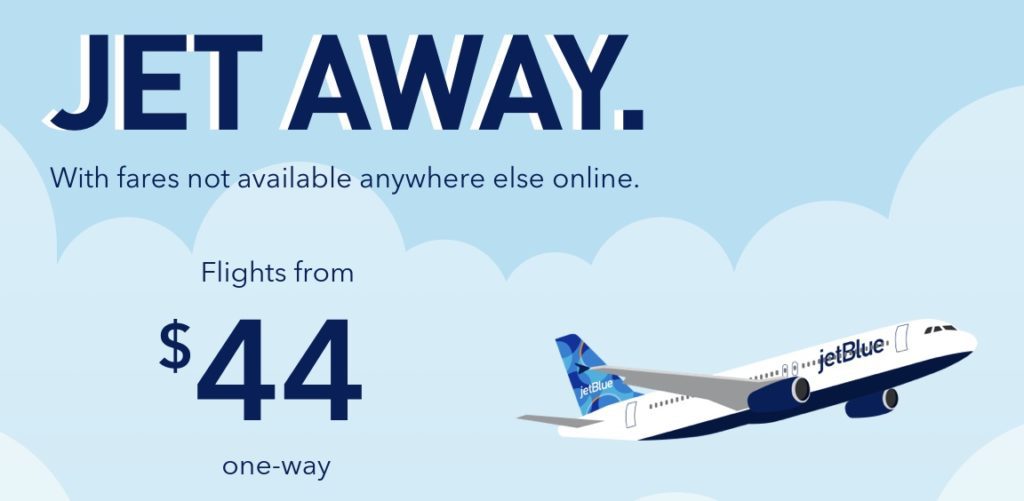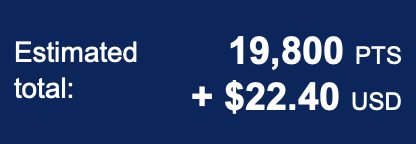I know this is an unpopular opinion, but I think there are several advantages to the fixed value loyalty programs over other airlines’ award point redemption models. By fixed value, I’m referring to loyalty programs such as JetBlue True Blue and Southwest Rapid Rewards, where the number of points required for free flight redemptions is tied to the cash price of the ticket.
Before saying why I don’t hate these programs, I’ll deal with people’s most common objection with a fixed value program.
It’s impossible to get an oversized value for redemptions in programs where awards are tied to the ticket price.
This is true. You’ll get approximately the same value for a point for all redemptions in the program. But does that mean you can’t get oversized value? Here are several reasons I disagree with this opinion.
Tying award prices to actual fares isn’t always a bad thing
The obvious advantage of basing an award ticket on the cash price is the ability to take advantage of fare sales. JetBlue and Southwest often run discounted fare sales.
Taking advantage of a sale to find value in a loyalty program isn’t new. People have been using fare sales from Flying Blue to book Promo Awards for years. Delta has occasionally flash award sales for SkyMiles members. What’s so different about waiting for a Southwest or JetBlue fare sale to book a cheap award flight?

It’s now possible to make aspirational trips with these airlines
Another argument about fixed-value programs was that you couldn’t use the points for aspirational trips. That’s no longer true as Southwest flies to Hawaii from several cities and JetBlue flies to London, Paris and will soon be flying to Amsterdam.. For most people, traveling to an island paradise or a flight in a Mint cabin across the Atlantic is the fanciest trip they’ll ever dream of. Air travel’s not all about caviar and Krug in a lie-flat seat.
Fewer chances of significant devaluations
A constant risk with airline loyalty programs is devaluation. That’s when the number of points needed to book a flight increases. Recently these changes have happened with no notice, which can be a big problem if you’re trying to earn enough points for a trip.
It would make sense to think fixed value point programs wouldn’t need to devalue their currencies. If the points required for a ticket are based on the cash price, all the airline needs to do is raise the ticket price. That’s what you’d think, but it doesn’t work that way.
Even if the programs devalue, it’s usually a reasonable increase, unlike the 20% or more increases that other programs put into place with no notice.
No worries about finding award space.
When trying to book an award ticket with a traditional airline program, the number of tickets available at the saver rate can be limited. Airlines may even block non-stop flights from award redemptions, forcing you to make a connection so that you can use your miles. Those airlines will gladly let you book an award with no capacity caps at a premium level but those tickets are rarely a good value.
Fixed value programs don’t have that problem. You’re able to book an award ticket as long as there’s a cash ticket available for purchase.
Sign Up Bonuses Can Go A Long Way
The fixed value program co-brand credit cards recently have offered lucrative signup bonuses
If you can find some good fare sales, those points will last you a long time. I booked two round-trip tickets from Orlando to New York and here was my total at checkout:

For 60,000 points, we both could fly to New York and back three times. Try doing that with United, Delta or American.
Final Thoughts
While others may disagree, I find the fixed value point programs of Southwest and JetBlue to be useful. I’m not going to spend money on the co-brand credit cards to build up huge balances but I’ll take advantage of signup and spending bonuses to use for free flights.
Want to comment on this post? Great! Read this first to help ensure it gets approved.
Want to sponsor a post, write something for Your Mileage May Vary, or put ads on our site? Click here for more info.
Like this post? Please share it! We have plenty more just like it and would love it if you decided to hang around and sign up to get emailed notifications of when we post.
Whether you’ve read our articles before or this is the first time you’re stopping by, we’re really glad you’re here and hope you come back to visit again!
This post first appeared on Your Mileage May Vary
Cover Photo N516JB JetBlue Airways Airbus A320-232 N (cn 1302) “Royal Blue” by Tomás Del Coro is licensed under CC BY-SA 2.0

4 comments
Absolutely. So many people focus on getting the most value by using points for first class international fares. But for the huge group of family travellers with multiple people of varying ages in coach – programs like Jet Blue are great. Yes – for the aspirational first class trips now and then I get a lot more value with other programs. But for the vast majority of family travel – it’s either Jet Blue or fixed value programs like Ultimate Rewards.
Just earn 2% cash back. Unless you do a lot of flying on that particular airline to pad the account you’re losing out vs cash back with these fixed value programs delivering less than 1.5 cents per point value. Lousy deal.
I’ll also throw in a good word for the usefulness of the Accor hotels reward program- so often hotel award space is pretty limited and the option to use award points toward any room category, any time, and any rate that isn’t deep discounted is great when you’re trying to be in a place during a holiday or special event time period.
It makes no sense when they devalue the points. The cost of airfare will naturally raise award prices, but Southwest seems to think it’s okay to reduce the value of points every couple of years. It’s a double whammy.